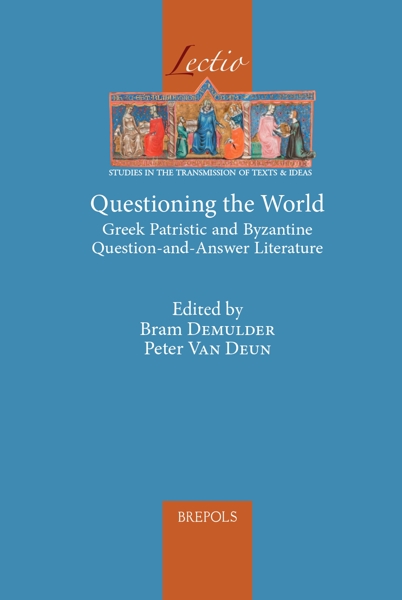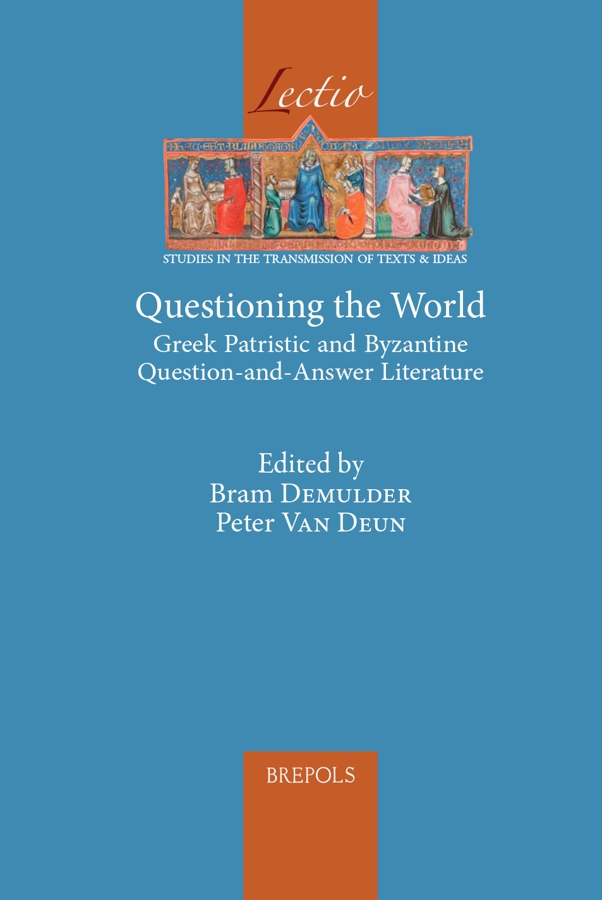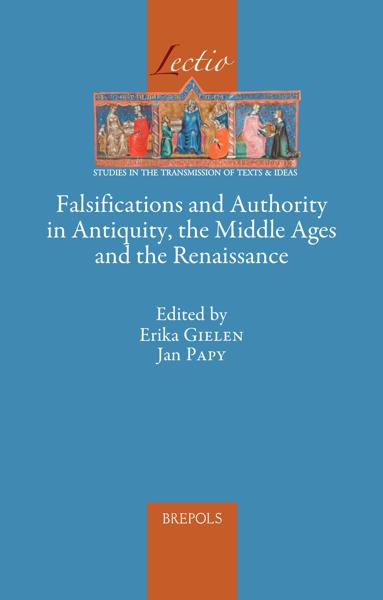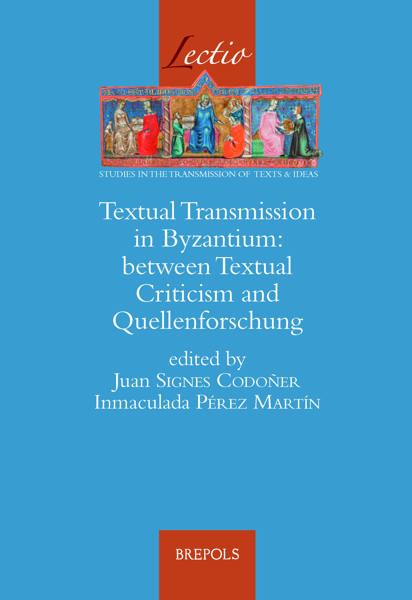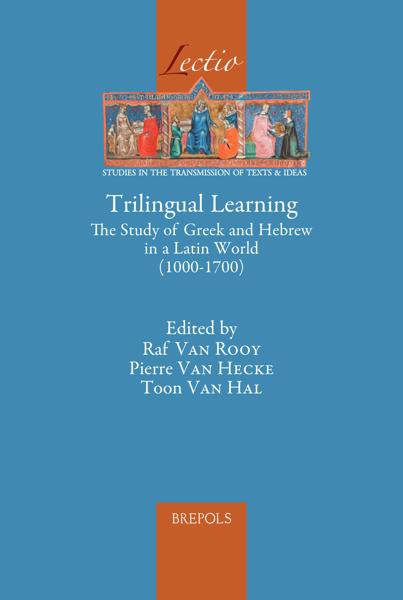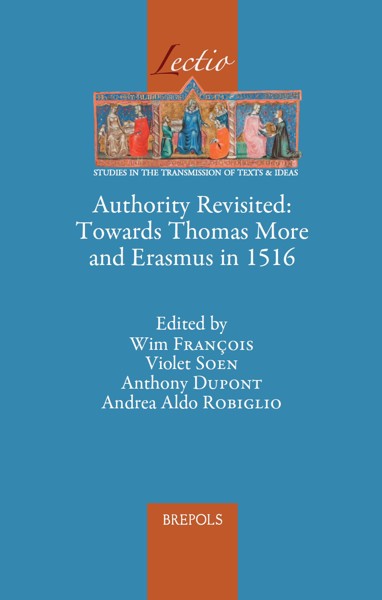
Questioning the World
Greek Patristic and Byzantine Question-and-Answer Literature
Bram Demulder, Peter Van Deun (eds)
- Pages: 472 p.
- Size:156 x 234 mm
- Illustrations:6 tables b/w.
- Language(s):English, French, Greek
- Publication Year:2021
- € 110,00 EXCL. VAT RETAIL PRICE
- ISBN: 978-2-503-59075-2
- Hardback
- Available
- € 110,00 EXCL. VAT RETAIL PRICE
- ISBN: 978-2-503-59076-9
- E-book
- Available
How did Greek Patristic and Byzantine authors understand the cosmos of which they were a part and the world in which they lived? And what literary forms did they use to express their questions and answers on these issues?
« Voilà donc un riche volume, certes divers dans les textes qu’il envisage et les approches proposées, mais fort riche, tant par les éditions qu’il contient (...) que par les oeuvres qu’il aborde, dont certaines sont encore fort mal connues. » (Matthieu Cassin, in Revue des sciences philosophiques et théologiques, 107-1, 2023, « Bulletin de Patrologie », p. 79)
« Le volume édité par B. Demulder et P. Van Deun ne manquera pas d’intéresser tous les spécialistes de littérature tardo-antique et byzantine. Les contributions proposées sont d’une haute qualité et ouvrent souvent de nouvelles pistes d’investigation. La variété des approches (théologique, philosophique, philologique…) montre la complexité des recueils d’ἐρωταποκρίσεις, ainsi que les enjeux de la réflexion cosmologique qu’ils véhiculent. À travers l’étude de plusieurs ouvrages et auteurs, ce recueil offre également un panorama des différentes formes que la démarche propre aux ἐρωταποκρίσεις (la « questioning attitude ») pouvait prendre. Enfin, la présence de textes et de testimonia parfois inédits manifeste le grand dynamisme de la recherche dans ce domaine. » (Gianluca Piscini, dans Revue de philologie, de littérature et d’histoire anciennes, 95/2, 2021, p. 268)
Bram Demulder is postdoctoral researcher at the Université de Liège / F.R.S.-FNRS (Fonds de la Recherche Scientifique). His main research interest is the interplay between cosmology and ethics in antiquity. In his PhD thesis (KU Leuven, 2018) he explored this theme in the work of Plutarch of Chaeronea.
Peter Van Deun is full professor of Byzantine Studies at KU Leuven. He is editor-in-chief of the Series Graeca of the Corpus Christianorum, of the Bibliothèque de Byzantion, and of the international journal Byzantion. His main interests are anthological literature in Byzantium and Maximus the Confessor.
This volume discusses cosmological issues in Greek Patristic and Byzantine question-and-answer literature. By adopting this focus, it yields novel insights into both the (theological / philosophical) content and the (literary) form of the texts under scrutiny. How did Greek Patristic and Byzantine authors understand the cosmos of which they were a part and the world in which they lived? And what literary forms did they use to express their questions and answers on these issues? This collection of studies shows that, in order to bring out the important intellectual contribution of the authors under discussion, both ‘cosmology’ and ‘question-and-answer literature’ should be defined more broadly than expected. Several papers deal with the crucial corpora by Pseudo-Justin and Maximus the Confessor. Other authors under discussion include Philoponus, Pseudo-Caesarius, Michael Psellus, Severian of Gabala, and Nilus Doxopatres. Attention also goes to the critical edition of question-and-answer literature, as well as to the Greek Patristic and Byzantine reception of cosmological questions and answers from Antiquity (i.c. Aristotle, Philo of Alexandria, Plutarch, and Iamblichus).
Introduction: Questions and Kosmoi (Bram Demulder & Peter Van Deun)
Part 1: Pseudo-Justin
Cosmology and its ‘Problems’ in Ps.-Justin’s Quaestiones et responsiones ad orthodoxos (Yannis Papadogiannakis)
The Ps.-Justinian Corpus of Erotapokriseis and Apologetical Treatises. In Search of an Author and a Historical Setting (Benjamin Gleede)
Is the Prime Mover the Source of All Movement? Pseudo-Justin on Aristotle’s Unmoved Mover (Marcelo D. Boeri)
Une polémique contre Philon d’Alexandrie dans la Question 69 ad orthodoxos attribuée à Justin ? (Sébastien Morlet)
Part 2: Maximus the Confessor
Re-interpreting Tradition: Maximus the Confessor on Creation in Ambigua ad Ioannem (Vladimir Cvetković)
St Maximus the Confessor on the Mystery of Christ (Torstein Theodor Tollefsen [University of Oslo])
Jamblique et Maxime le Confesseur, cosmologie et théurgie (Christian Boudignon)
What Theodosius of Gangra wanted to Know from Maximus the Confessor (Bram Roosen)
Part 3: Cosmologies in Sixth-Century Byzantium
Les conditions de l’avènement de la lumière dans le De opificio mundi de Jean Philopon. Difficultés et solutions (Pascal Mueller-Jourdan)
Pre-Existence and the Creation of the World in Pseudo-Caesarius (István Perczel)
Part 4: Questioning Genre in the Middle-Byzantine Period
Pagan Garlands and Christian Roses. Plutarch’s Quaestiones convivales in Michael Psellus’ De omnifaria doctrina (Michiel Meeusen)
Cosmological Questions Answered with Severian of Gabala in MS Athonensis, Lavras B 43 (Eustratiadis 163) (Reinhart Ceulemans)
Le De oeconomia Dei de Nil Doxapatrès. Quelques observations sur le genre littéraire de l’œuvre et sur sa transmission manuscrite (Peter Van Deun)
List of Abbreviations
Index biblicus (Maxim Venetskov)
Index fontium (Maxim Venetskov)
